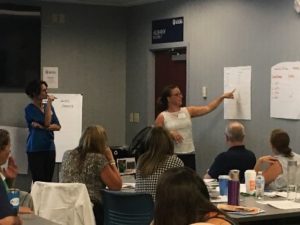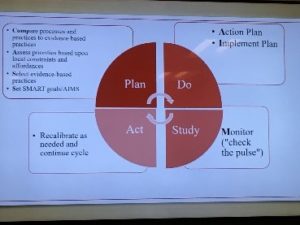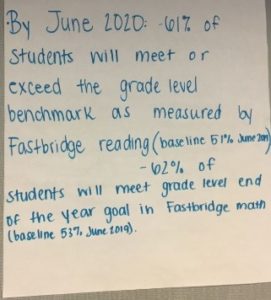School Teams Identify Goals and Actions for Improving Student Outcomes at the 2019 Summer COMPASS Institute
 While summer provides educators with opportunities for some well-deserved relaxation, it also offers opportunities to reflect and prepare for a new school year. On July 17th and 18th, educators from several school districts in the Capital Region did just that as they participated in NYKids’ 2019 Summer COMPASS Institute, facilitated in collaboration with the Capital Area School Development Association (CASDA) and Capital Region BOCES.
While summer provides educators with opportunities for some well-deserved relaxation, it also offers opportunities to reflect and prepare for a new school year. On July 17th and 18th, educators from several school districts in the Capital Region did just that as they participated in NYKids’ 2019 Summer COMPASS Institute, facilitated in collaboration with the Capital Area School Development Association (CASDA) and Capital Region BOCES.
The overall goal of the Institute was to help school teams to build capacity toward improving Pre-K-12 college and career readiness. Steps included identifying shared improvement priorities, articulating improvement goals, and then developing action plans that will be used to work toward those goals during the next school year.
Participants were introduced to the NYKids COMPASS process, a unique Plan-Do-Study-Act cycle that draws upon improvement science and lessons from NYKids’ odds-beating schools (those identified as having achieved better than predicted graduation rates for ethnically, linguistically, and socioeconomically diverse students).
Learning to Improve Using the COMPASS Process

Day 1 of the Institute started with team building and understanding the “why” behind their improvement journeys, after which school teams were guided through the four key steps of the COMPASS process:
- COMParing processes and practices at their schools to those in odds-beating schools;
- Assessing priorities based on local constraints and opportunities;
- Selecting research-based levers for improvement from odds-beating school case studies, and
- Setting SMART (specific, measurable, attainable, results-oriented, time bound) goals.
 While working through the COMPASS process, participants drew upon findings from the NYKids’ College and Career Readiness: Promising Practices from Odds-Beating Secondary Schools study which outlines four key characteristics of odds-beating secondary schools.
While working through the COMPASS process, participants drew upon findings from the NYKids’ College and Career Readiness: Promising Practices from Odds-Beating Secondary Schools study which outlines four key characteristics of odds-beating secondary schools.
As Day 1 came to a close, school teams had identified priorities and had begun to articulate SMART goals. As one participant noted, “I am completely new to leadership, and setting goals through this [process] was especially helpful!”
Action Planning and the Power of Teaming
Day 2 focused on “when the rubber meets the road”: Action planning. NYKids and CASDA facilitators introduced teams to additional NYKids resources, such as the Know Your Schools Performance Tracker and research reports located on the NYKids website, to further revise their goals and action plans.
By the conclusion of Day 2, school teams not only left with action plans that can be further refined in collaboration with colleagues during the school year but explored the power of a teaming to address persistent challenges that impact student outcomes. Recommended follow ups for these teams include making sure that their goals are FAST (frequently discussed; ambitious in scope; measured by specific metrics and milestones; and transparent for everyone in the organization to see) as well as SMART, and their study of improvement effort impacts are ideally done with support and guidance in continuous improvement strategies from NYKids, CASDA, and BOCES.
To learn more about the NYKids COMPASS process, including how your school can participate, visit: https://ny-kids.org/school-improvement/.
